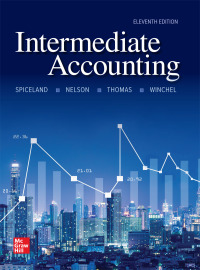As a senior auditor with Klein and Co, you are interacting with David Perkins, CFO of a
Question:
As a senior auditor with Klein and Co, you are interacting with David Perkins, CFO of a prominent public company and an important client. Perkins has a reputation for pushing for favorable accounting treatments, and frequently asks auditors to “prove to me where it says I can’t do that.”
Required:
Access the FASB Accounting Standards Codification at the FASB website (www.fasb.org) and select Basic View for free access. Determine the specific eight-digit Codification citation (XXX-XX-XX-X) that indicates the appropriate accounting treatment for each of the following situations, and in each case indicate whether Perkins has authoritative support in the Codification for his preferred treatment.
1. Perkins believes that his deferred tax liabilities should be calculated on a discounted present value basis, which allows him to report a smaller amount of liability. “After all, those are amounts that are going to be paid in the future–why can’t I discount them like I would other long-term liabilities?”
2. Perkins argues that, when determining whether he should record a valuation allowance against deferred tax assets, he should include as a source of future taxable income any future reversals of existing taxable temporary differences, which will increase taxable income. Doing so will reduce his valuation allowance and tax expense. “We have deferred tax liabilities that will reverse in the same periods as deferred tax assets reverse, so they will provide taxable income that will soak up the deductions produced by reversal of the deferred tax assets. I should get to include them when determining the amount of any valuation allowance we would have to record.”
3. Perkins wants to separately list his net current deferred tax asset and his net noncurrent deferred tax liability in his company’s balance sheet, thereby improving his company’s current ratio. “I have deferred tax assets that I know will reverse next year, and I know my investors will be better off with information about both current and noncurrent assets and liabilities.”
4. Perkins does not want to provide a reconciliation of changes in the company’s unrecognized tax benefits during the year, given previous concerns by investors that his company is too aggressive in its attempts to avoid paying taxes. “I know your firm has required that we recognize a liability for these uncertain tax positions, and we have done that, but more disclosure is unnecessary. Our financial statements and notes are too long as it is.”
Step by Step Answer:






